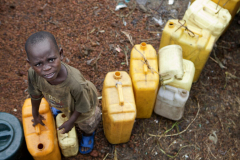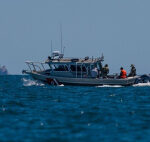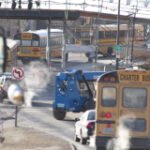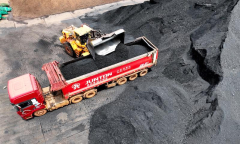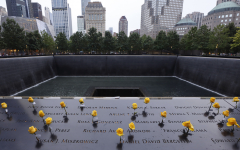- Fighting between the Armed Forces of the Democratic Republic of Congo and the M23 armed group around Goma has displaced and upended life for hundreds of thousands of people.
- Many have fled camps for internally displaced people and taken refuge in host families’ homes, schools and churches amid widespread looting and killing.
- Still, many residents in and around Goma say they maintain hope for a peaceful future.
GOMA, Democratic Republic of Congo — “I fled the fighting in Bweremana between the Armed Forces of the Democratic Republic of Congo [FARDC] and the M23 armed group. I saw how a whole family was [wiped out] when a bomb exploded,” says Viviane Muteule, a mother of six.
Muteule was an internally displaced person at the Rusayo camp northwest of Goma in January but was forced to flee with her family into the middle of Goma, to avoid being killed during bombardments of the camps at a time when fighting was raging in Sake, 25 kilometers (15.5 miles) west of Goma.
A recent onslaught on the city of Goma by M23, a Rwanda-backed rebel force, displaced hundreds of thousands of people in the eastern Democratic Republic of Congo, which has witnessed armed conflicts for decades.

“I was forced to become a double war displaced person within 20 days. I fled misery at home in Bweremana, but it pursued me right into the camp. I saw the bodies of people who had died from bomb shrapnel not far from my tent,” she recalls, full of remorse.
Since Jan. 27, M23 fighters, who, according to the United Nations, are backed by Rwanda, have seized the city of Goma, the provincial capital of North Kivu province, in eastern Democratic Republic of Congo.
Shortly before the city fell, intense military movements that had lasted about 10 days were reported in the surrounding areas.
Internally displaced people’s camps around Virunga National Park were abandoned by those displaced, who feared being caught in the crossfire, even though they had fled their villages for the same reasons.
While the fighting occurred very close to Goma town, most displaced persons had taken refuge with host families, as others had gathered in the concessions of churches and schools in the town.
Dieumerci Bora, father of three children, hosted 12 people in his home Jan. 22-28. A motorcycle taxi rider, Bora’s motorcycle was stolen on Jan. 13 during the unrest around Goma following the deterioration of the security situation there.

He says it was out of solidarity with those suffering that he housed a dozen displaced people at his home, despite the difficult economic situation.
“In any case, almost all of Goma has become a camp for the displaced. No one chose to flee their locality; an unfortunate combination of circumstances led to this. Whatever little [that] I could find, we shared. And when I couldn’t find anything, we all went hungry,” he tells Mongabay.
According to the United Nations, the fighting in which M23 rebels overran government soldiers and their allies to capture the town of Goma town claimed almost 3,000 lives, including civilians and combatants. Even more were wounded in the fierce fighting.
In addition to the human toll, many parts of the city and surrounding areas suffered huge economic losses.
Amid the stampede, the DRC’s armed forces and their allies, the pro-government Wazalendo militia, were accused of acts of looting and killing in certain areas of Goma, particularly at the end of January.
“Armed men in regular army uniforms and those of the pro-government armed groups forced me to give them my [mobile phone handset]. After taking my phone, they slapped me, [ordered] me not to look back,” says Michael Kubuya, a resident of Goma.
Taking advantage of the disorder in Goma city, many civilians engaged in looting fo

